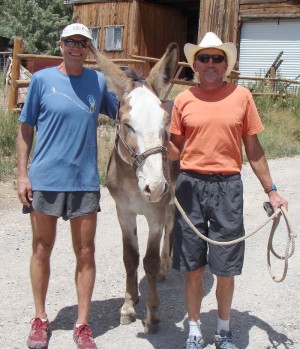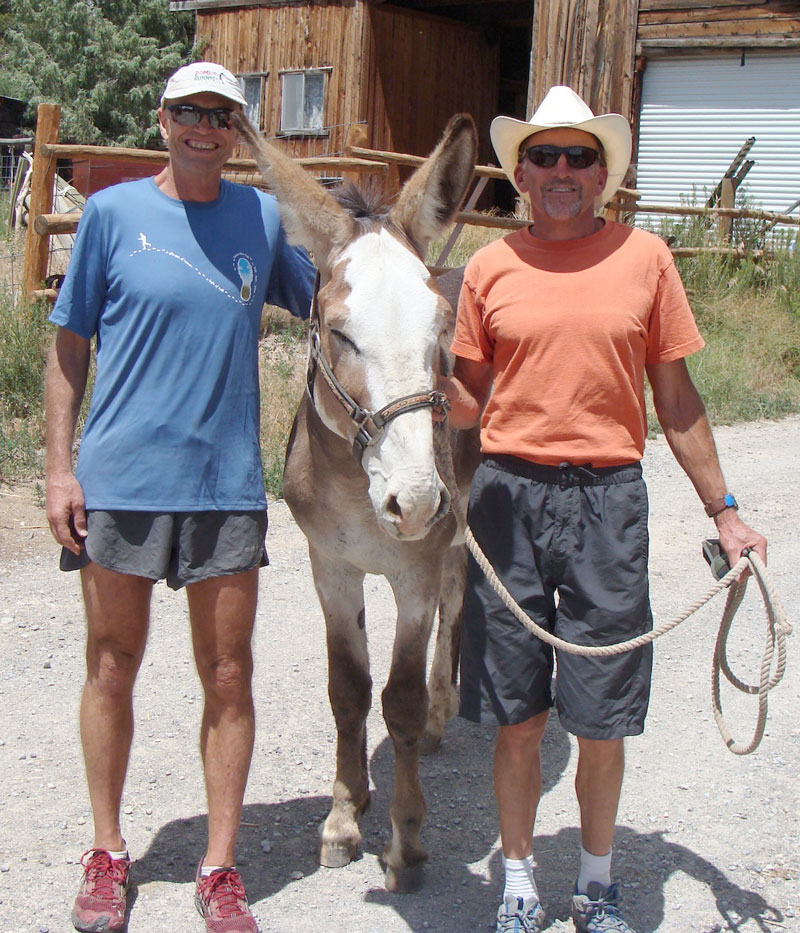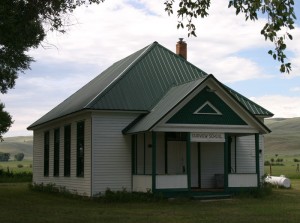By Hal Walter
Although our trails had crossed numerous times over decades of mountain running, if it hadn’t been for the untimely departure of a close friend, I’d likely never have met the near mythical Micah True, aka Caballo Blanco, the central character of the New York Times bestseller “Born to Run.”
Micah recently made headlines when he was found dead four days after disappearing on a solo trail run in the Gila Wilderness of New Mexico. Among the search party was Christopher McDougall, the author whose first search for Micah led to literary acclaim.
 My friend Rob Pedretti, who I met through the sport of pack-burro racing, crossed over in 2004. Rob’s brother Roger, who lives in LaCrosse, Wisconsin, took up pack-burro racing as a tribute to his brother and now travels out for the races each summer. Roger had been going through some of Rob’s old papers. He also was reading “Born to Run” and noticed Micah’s name in some of the old running race results Rob had saved, and made the connection from the book.
My friend Rob Pedretti, who I met through the sport of pack-burro racing, crossed over in 2004. Rob’s brother Roger, who lives in LaCrosse, Wisconsin, took up pack-burro racing as a tribute to his brother and now travels out for the races each summer. Roger had been going through some of Rob’s old papers. He also was reading “Born to Run” and noticed Micah’s name in some of the old running race results Rob had saved, and made the connection from the book.
Roger found Micah on Facebook and began corresponding with him. The next thing I knew I was Micah’s “friend,” too. Roger had talked him into racing a burro in the upcoming race at Leadville, and I was providing the burro. Micah was open to new adventures and everyone he met quickly became his friend and running partner. We met at the Canterbury Ranch near Howard and went for a run with Spike. I still remember the laughter as the black burro got away from the “White Horse” a couple times on the downhill. We quickly became true friends and he actually ended up running in the Leadville pack-burro race in both 2010 and 2011.
Little did I know that within two years Micah also would become the first friend I’ve ever known whose death was reported by the New York Times, National Public Radio, BBC, Outside, and other major media. He would be eulogized in public memorial services across the country. And the world would perhaps learn more about this remarkable person in death than had been reported in 58 years of his life. The cause of death had not yet been released at this writing.
As Don Henley notes, it’s interesting when people die. This is even more true of runners who die while running. What’s unfortunate is that while people tend to dwell on the how and why of death, they often fail to take note of the how and why of the person’s life.
For example, almost all reports noted that Micah was the race director for the Copper Canyon Ultra Marathon in Mexico, but rarely was there mention that he organized the race as a benefit for the Tarahuma – or Raramuri – people who inhabit the area.
The race annually brings in 100,000 pounds of staple corn for the Tarahumara, and $14,000 in prizes. Every Raramuri who finishes the race is awarded 500 pounds of corn. Using his fame from “Born to Run,” Caballo traveled the U.S. – and indeed the world – on his “Talking Horse Tour,” raising awareness of the plight of the Tarahumara, one of the world’s last indigenous running cultures.
The Raramuri, or “Running People,” evolved as runners as a means to travel quickly through their rugged homeland, relay messages between villages, and hunt. They continue to celebrate this tradition through ceremony and competition to this day.
The Tarahumara are now feeling the encroachment of modern culture, with its drug wars, mining and timbering. Running, Micah understood, was the last remaining thread holding the Tarahumara culture intact. One writer characterized Micah as the only person who could possibly help the Tarahumara.
“Born to Run,” tells the story of Micah from his career as a champion prize fighter living in Boulder, Colorado, to his virtual drop from society as a reclusive and near-mythical character living in a mud-and-stone hut in the bottom of a Mexican canyon and spending his days running among the Tarahumara. He became acquainted with Raramuri runners at the Leadville Trail 100 ultramarathon in the 1990s.
Though he took some exception to certain portrayals in “Born to Run,” the book drew Micah out of the depths of the canyons. It gave him a new sense of a mission, and the notoriety that he needed to really help him make a difference. The relative “fame” never went to his head. “Just trying to keep it real,” he told me. “Run free.”
And so he did. Living practically out of the back of his truck, traveling to speaking engagements, and running. Running, always running. But in the end Micah’s life was about so much more than running. It was about living courageously. Oddly, Geronimo was Caballo’s hero, and his body would be found near the place Geronimo was believed to be born.
How many of us will live as bravely and justly as Micah? How many of us will turn our passion and good fortune into a mission of helping others? How many of us will die doing what we love in a place we love?
It seems he found the perfect trail to the other side.
Even in death Micah True may remain the one person who can help the Tarahumara. Those of us who had the good fortune to know him, either personally or through his legend as told in “Born to Run,” can celebrate his life and honor his message.
Run Free, Caballo Blanco!
Hal Walter writes and edits from the Wet Mountains. You can keep up with him regularly at his blog:
www.hardscrabbletimes.com



